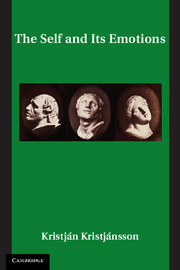Book contents
- Frontmatter
- Contents
- List of Tables
- Acknowledgments
- 1 Introduction
- 2 What Selves Are
- 3 Exploring Selves
- 4 The Emotional Self
- 5 Self-Concept: Self-Esteem and Self-Confidence
- 6 The Self As Moral Character
- 7 Self-Respect
- 8 Multicultural Selves
- 9 Self-Pathologies
- 10 Self-Change and Self-Education
- References
- Index
- Titles in the series
10 - Self-Change and Self-Education
Published online by Cambridge University Press: 05 May 2010
- Frontmatter
- Contents
- List of Tables
- Acknowledgments
- 1 Introduction
- 2 What Selves Are
- 3 Exploring Selves
- 4 The Emotional Self
- 5 Self-Concept: Self-Esteem and Self-Confidence
- 6 The Self As Moral Character
- 7 Self-Respect
- 8 Multicultural Selves
- 9 Self-Pathologies
- 10 Self-Change and Self-Education
- References
- Index
- Titles in the series
Summary
Conceptual Preliminaries
It is almost a truism that all education is about change: changed patterns of knowing, feeling, conceptualising and perceiving. Someone may want to say that all education is consequently self-changing: If you teach a group of students the names of the capitals in Africa, then one aspect of their selves has changed when they leave the classroom. This use of the term ‘self’, however, would be considerably broader than allowed by the commonsense view of the self on which I rely in this study. Although the commonsense view acknowledges that selves gradually develop and change over time, the notion of a sudden self-change or self-transformation cannot – given the restrictive sense of selfhood embodied in this view – be taken that lightly.
Yet there is, on the commonsense view, a profound sense in which some education can be considered self-changing. ‘That course in philosophy I took really changed my life’, someone might say, or ‘I came back from the field trip to Africa a completely changed person’. A woman described how joining the feminist movement changed her: ‘I feel as if I woke up one morning to find myself completely different […] I am just not the same person I was three months ago. I look back and cannot believe that I was her’ (Goodman, 1979, p. 69). We know what such utterances mean; reports of life-changing experiences are well documented in biographies, films and novels. Some of us have undergone such experiences ourselves.
- Type
- Chapter
- Information
- The Self and its Emotions , pp. 218 - 248Publisher: Cambridge University PressPrint publication year: 2010



